Florence, South Carolina is an old railroad town just a few miles shy of the intersection of I-95 and I-20, which is how most people know it. As a place to get some food and sleep, before driving on.
There isn’t much at the exits to distinguish Florence, beyond the novelty of seeing a firework store next to a Waffle House. See Marge, we really are in the south. Beyond that, they are crowded messes of truck stops, access roads, hotels, parking lots, gas stations, and every fast-food franchise possible, all piled atop of each other. See Marge, it is ugly, but with palm trees.
Spend a little more time here and you notice how diverse the entire scene is. The Waffle House, McDonald’s, and Cracker Barrel, have as many whites in them as blacks. Same with the discount motels, convenience stores, and shops. The diversity here doesn’t just play out in the way it mostly does in wealthier northern towns, where blacks are serving whites, but in a more balanced way, with both as workers and customers.
That is because Florence, like many deep southern towns, is half black and half white, and while the black residents are poorer, the gap between them and whites isn’t as large as it is in New York or DC. Because in Florence what most everyone shares, regardless of skin color, is a lack of fancy college degrees.
Still, sadly, Florence the physical town, is segregated, but that isn’t unique to the Deep South. Every US town is. The how and why might be different, but Milwaukee, Chicago, Boston, New York, DC, are just as, if not more segregated than Florence, Montgomery, Orlando, or Atlanta.
In Florence the dividing line is the railroad (see Marge, just like the movies), with the “traditional African-American neighborhood” (oh euphemisms) on the shitty side of the tracks, on the less desirable land prone to flooding and cut off from everything else side.
That is the neighborhood I head to first, but it is four miles away. Four absolutely straight miles past shops, churches, flooring stores, heating oil companies, building supply stores, cotton fields, a strip club, a bespoke brewery, and more churches. It is a road nobody lives on but everybody drives on. Really fast. Presumably because they are late for work. Or just because.
Where the road finally bends, at the intersection of some railroads, is a Family Dollar and Speedy convenience store. Both are filled at 9 am with the usual assortment of complex situations. A couple arguing over a drama only fully know to them around a broken down van, its doors flung open, revealing two small confused children inside. A middle-aged woman, wobbling a bit, dressed for a long gone warmth, approaches me to ask for directions, explaining, “I ain’t from around here. I come up from Marion, you know Marion, but I been left short. You think you could help?” I offer to buy her a coffee, sandwich, and smoke, but she declines with a deep cough, “I got to be moving on.”
Standing quietly in the shade of the store, watching it all, are four older men, smoking, sipping coffee, and laughing. We banter back and forth and I ask them if I can take their picture, and they pretend to scatter, as one laughs, “We all wanted by the law,” which brings the response from another, “Speak for yourself. I was the law.”
As I am taking a picture of the store, the owner, Mr Patel, comes rushing out, “Why you taking a picture of my store.” I try to calm him as much as I can, explaining what I do. But of course, when it comes out I realize how weird it sounds, “I walk around the country talking to people and taking pictures.” Momentarily confused and mollified, he explains he thought I was taking pictures to sue and claim ownership of the store. Which he says has happened before. Twice.
The neighborhood the store serves, and where I walk next, is entirely black. It reminds me of so many places in the South, including my home town. Mostly wooden homes along quiet streets, with lots and lots and lots of churches. And super friendly porch action. Unlike in northern neighborhoods, everyone who is out, waves to me, shouts a hello, or calls me over to talk. There isn’t a billion questions about what I am doing, or follow up questions about my intent. There is however, long conversations about family history, current micro dramas on the street, and complaints about stuff I can’t fully comprehend that once went down.
S tells me how she splits her time between here and Florida, how she has been in a wheelchair since the motorcycle accident, how she is trying to find funds to fix up her house, how she does love Florence, but misses being able to work. I ask her instinctively “Is Florence all good. You know. With that racial stuff.” She looks confused. “I guess. ‘Bout as good as anyplace else.”
J tells me how he left Florence when he was 18, so as not to be a burden on his young mom stuck raising six kids when his dad up and suddenly died. How he went into the military (What else was there to do?), then worked a good job for forty years out west until he could retire back here (“Florence never really leaves your blood”), to care for his 94-year-old mom, “Pay back time for all she did for me.”
I could stay all day here talking, everyone wants to, but I see rain clouds coming, and do my best politely to move on.
Between this neighborhood and downtown, my next destination, is a massive set of railways and railyards, a legacy of Florence’s transportation hub past.
Another, and uglier legacy, is the downtown itself, which is split cleanly in two by the rail lines, between the “Historic Downtown African American Business District” (euphemisms again), and just the historic downtown. The former is mostly empty, beyond a barbershop and church, while the other filled with upscale restaurants, clothing stores, and places selling knickknacks to old people.
History still looms and lingers over everything.
The rest of my walk, through the downtown, and then six miles west out along the main drag, before looping back to my hotel, is cut short by the rain clouds. I wait out the drizzle in a closed Starbucks (“Drive through only!”) thanks to a kind manager, before walking the sidewalk-free last four miles along a road lined with factories that make stuff used to make more stuff (electric arc furnaces, knives, saws, tools), before finally passing a Hindu temple. See Marge, the south is weird.
That evening, and the evening before, I did what I always do when on the road. I first went to a Mexican restaurant (Mi Tierra San Jose, ok-ish food, nice people). Then hung out in some dive bars, a bespoke brewery (Seminar Brewing, very good), before ending in McDonald’s for a cone.
The scene in all of them was like the scene at the exit. Truly diverse. Not in a transactional way, like how diversity plays out in New York City, or DC, where wealthy white Upper East Siders have food delivered to them by black guys from East New York. But in a ‘we kinda both live the same type of lives, shop in the same stores, like the same shit, work the same jobs, and read the same Bible’, way. Although we do live on different side of the tracks and probably do vote differently (if we bother to vote).
That isn’t surprising, and isn’t confined to Florence. This similarity in how blacks and whites live, and what they value, plays out almost everywhere in the Deep South where there is a significant black population, which is almost everywhere. While the Deep South has a far far greater historical racial burden that is still manifest, it is often more equal than in the north. Not statistically (although that it is arguable), but in everyday life.
While DC and New York City are just as physically segregated (Go from East New York to the Upper West Side, or from Georgetown to Anacostia), they are far more economically, culturally, and intellectually segregated.
A banker on the Upper East Side, or a professor on the Upper West Side has almost nothing, zero, in common, in how they live their lives, how they view the world, and how they imagine themselves, with the black residents of East New York. Or a Latino from the South Bronx. Their interactions are almost always brief and transactional. Rarely do they eat, drink, or shop in the same place. They certainly don’t share similar religious views, don’t shape their lives around faith in the same way.
This isn’t to excuse or deny the racism that is still a huge factor in places like Florence. Again. Walk from one side of the tracks to another. It is there. Right there.
It is a reminder that racism isn’t confined to places like Florence. It isn’t only measurable by how one votes, or by a region’s past. It is also measurable by how one chooses to live their life and if they choose to remove themselves from the day to day issues that can arise when different people live next to each other.
When I left my small southern hometown, a place like Florence divided between black and white by a railroad, I partly did so because I thought I was better than this. I then proceeded to follow the meritocratic blueprint, and move north through a series of ever more elite institutions that were gated, not explicitly by race, but might as well have been. Almost everyone around me was white, and we all shared the same world view, and had pretty much the same biography post high school. We were careerists building resumes and getting degrees, to gain wealth, status, and fame. We cared very little for where we had come from, and those we left there still clinging to their irrational faith.
I, like so many others, had completely removed myself from those who remained in my hometown, both black and white. In how I thought, what I valued, and how I lived. While that town, despite its ugly history, had become closer in almost every way.
That is what walking through Florence, and hanging in bars and McDonald’s at night, reminded me of, and why I ended the walk frustrated (Note: never check twitter when frustrated).
Wealthy and properly educated white New Yorkers, or Bostonians, who claim to be so much better, so much more morally superior, need to stop and look around at how they live, what they value, and who their friends are, before accusing others.
They need to ask themselves who is more removed from the racial problems in the US?
They need to realize what they aspire to, and urge and forcefully demand what others should aspire to, is not necessarily what others want in and from life.
While they ain’t necessarily racists, they are definitely hypocrites.
Gee Marge, maybe we are the baddies.
My walk (roughly)




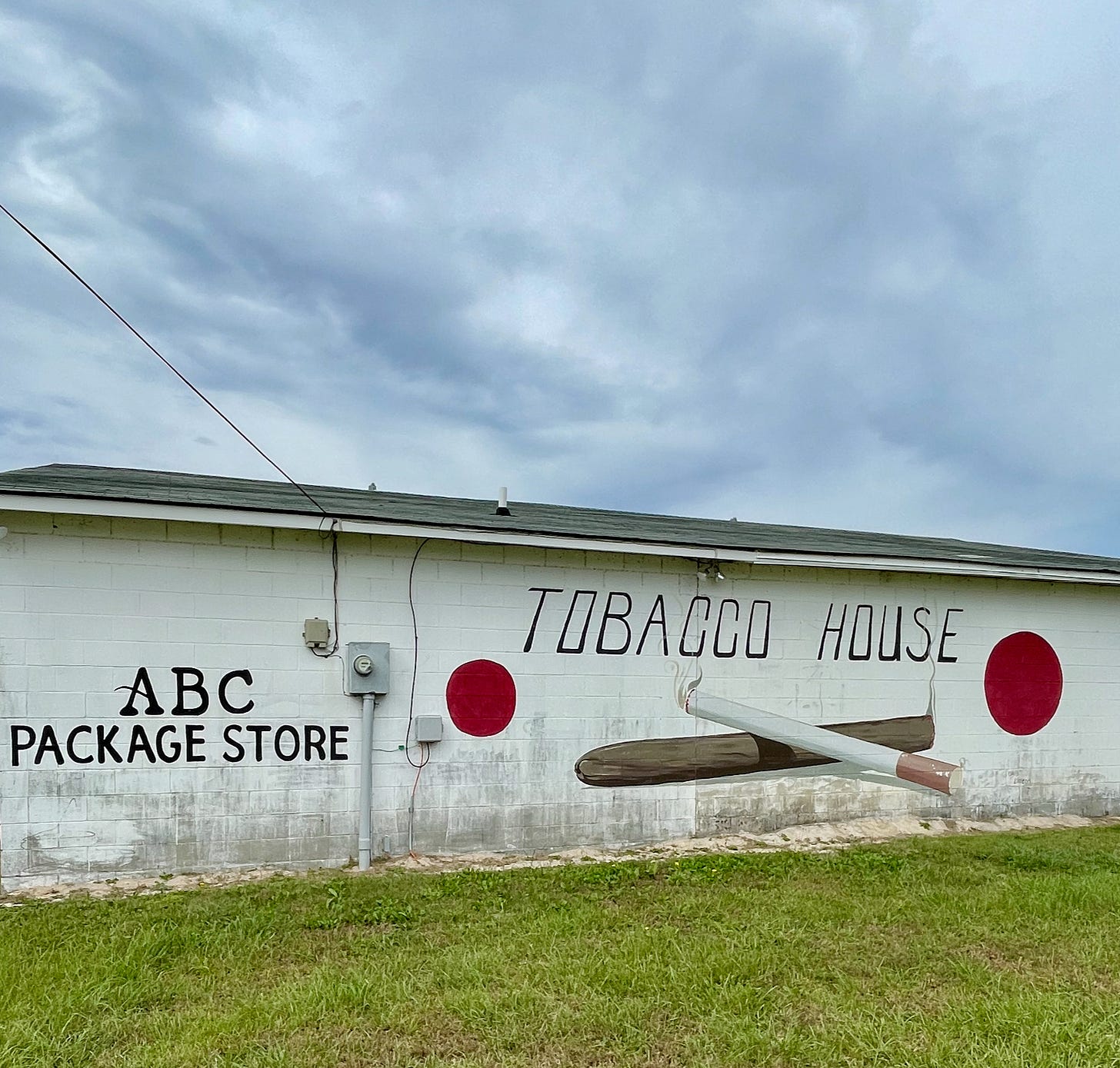

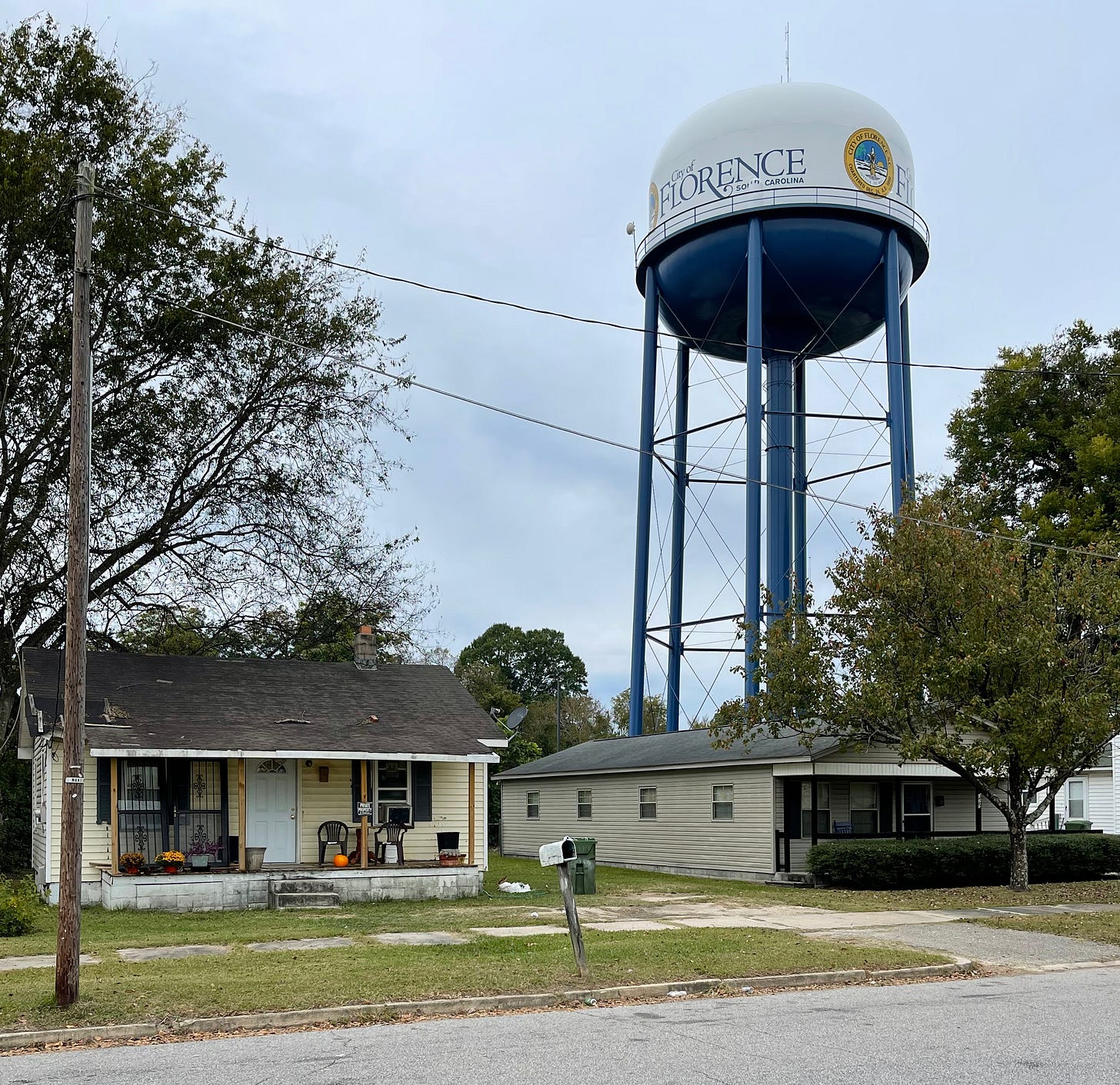
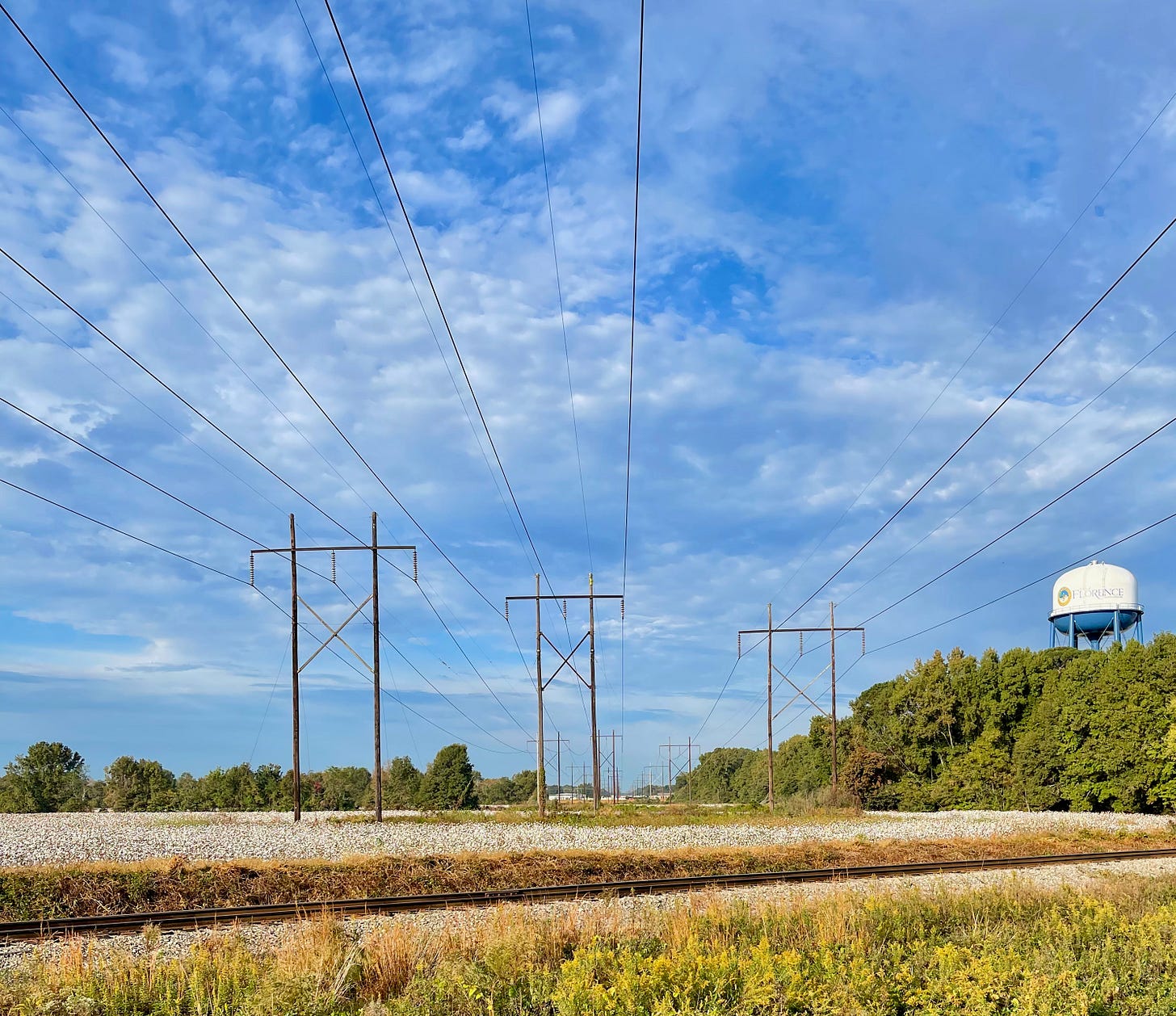
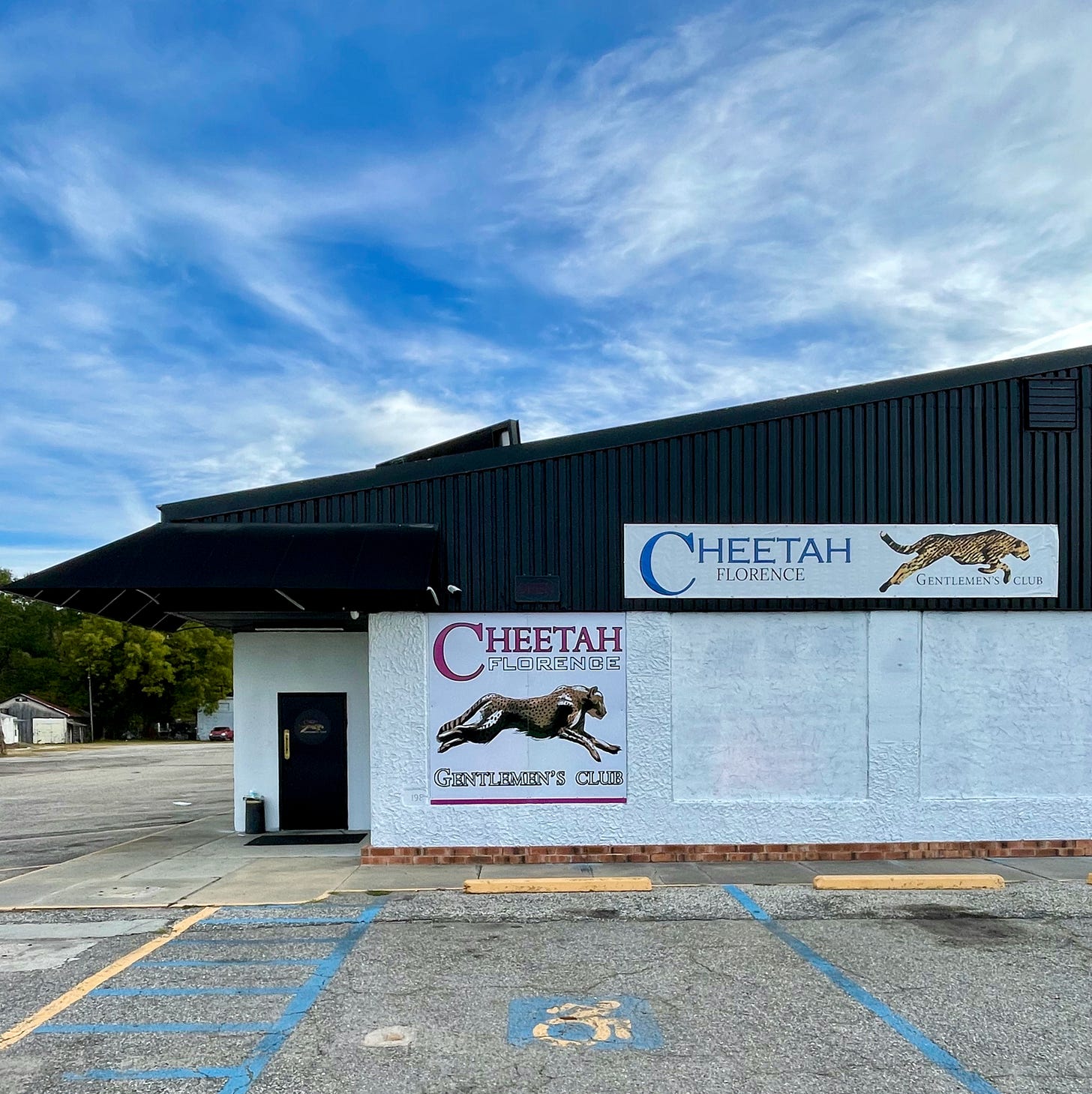
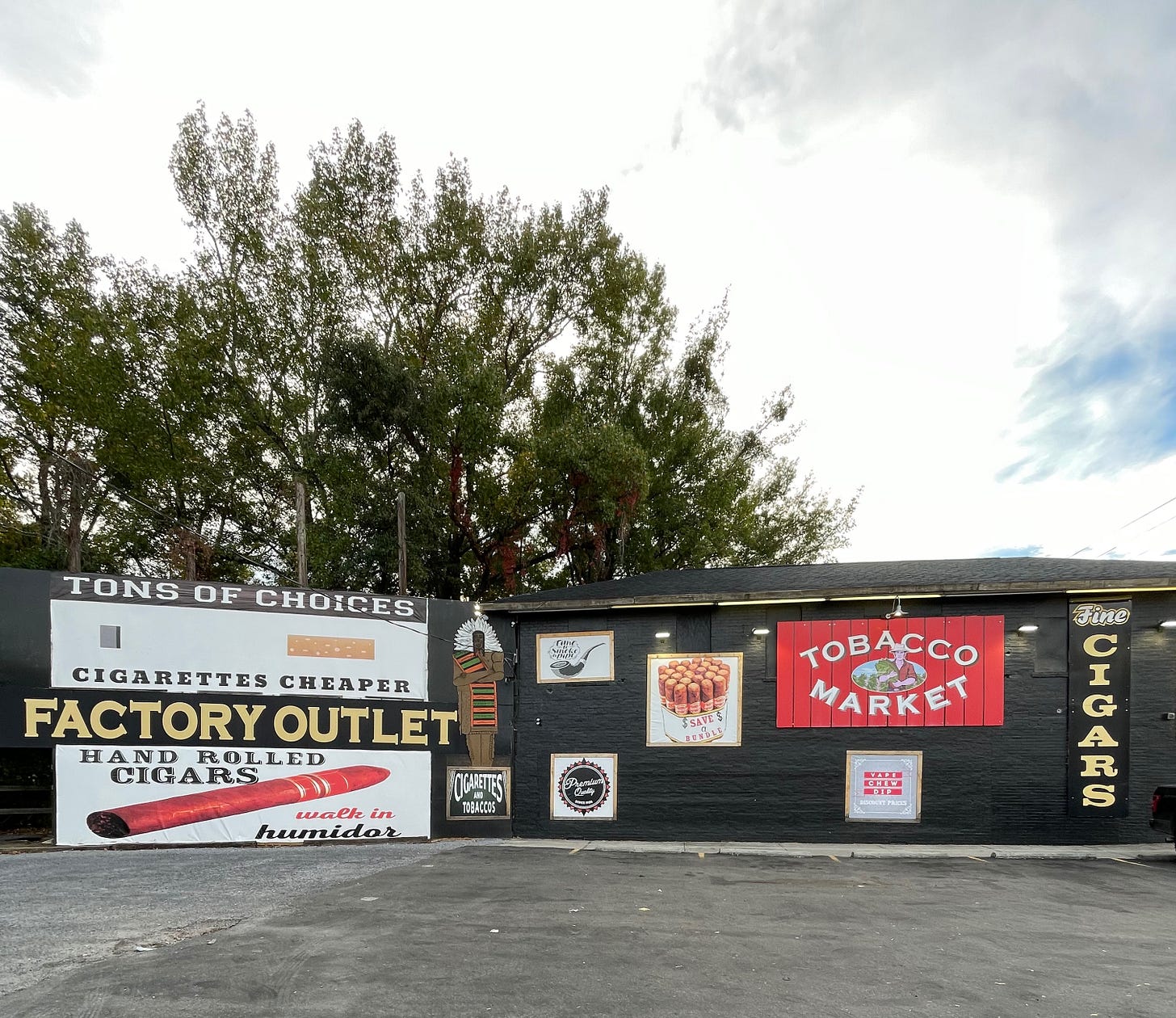
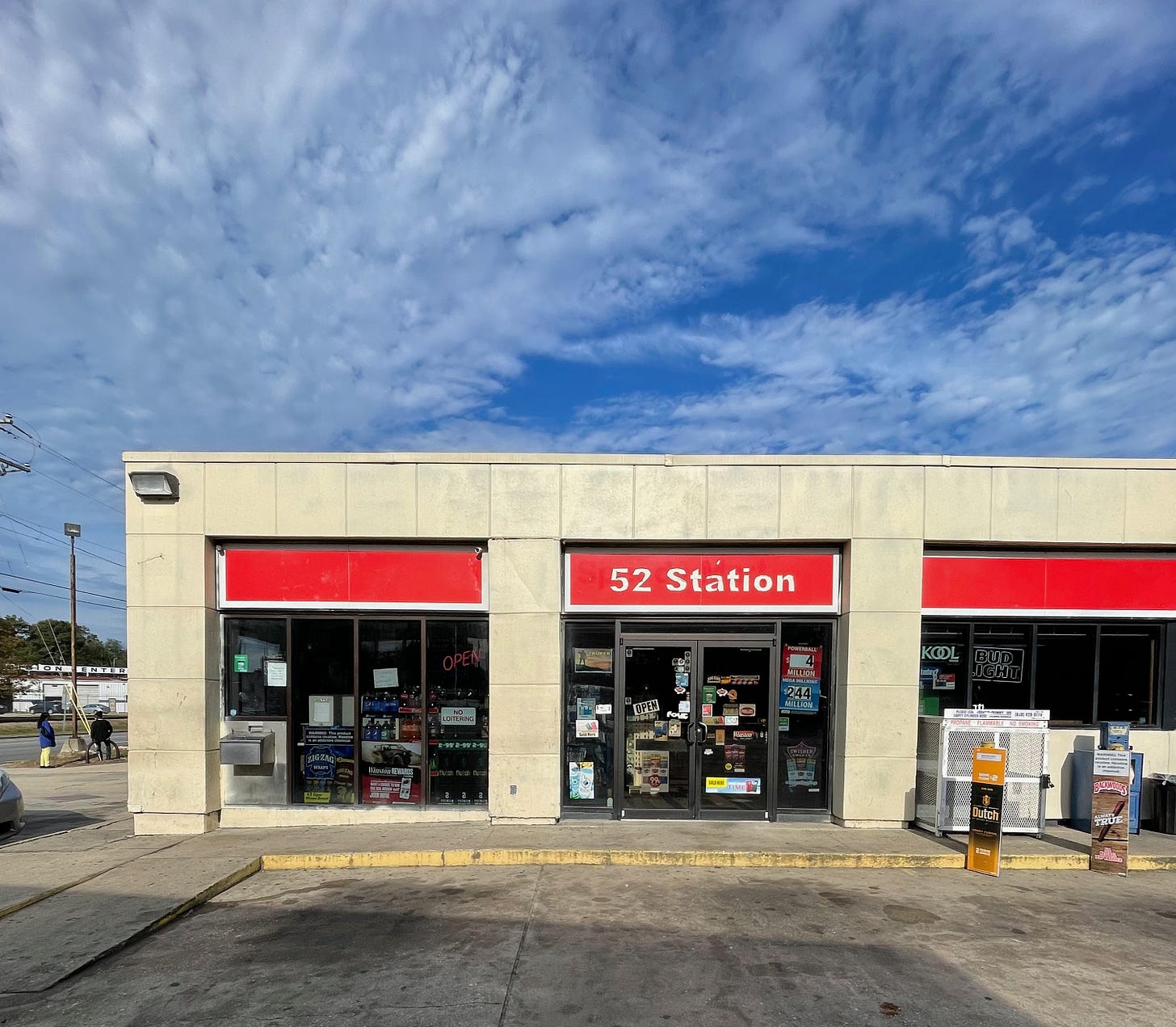
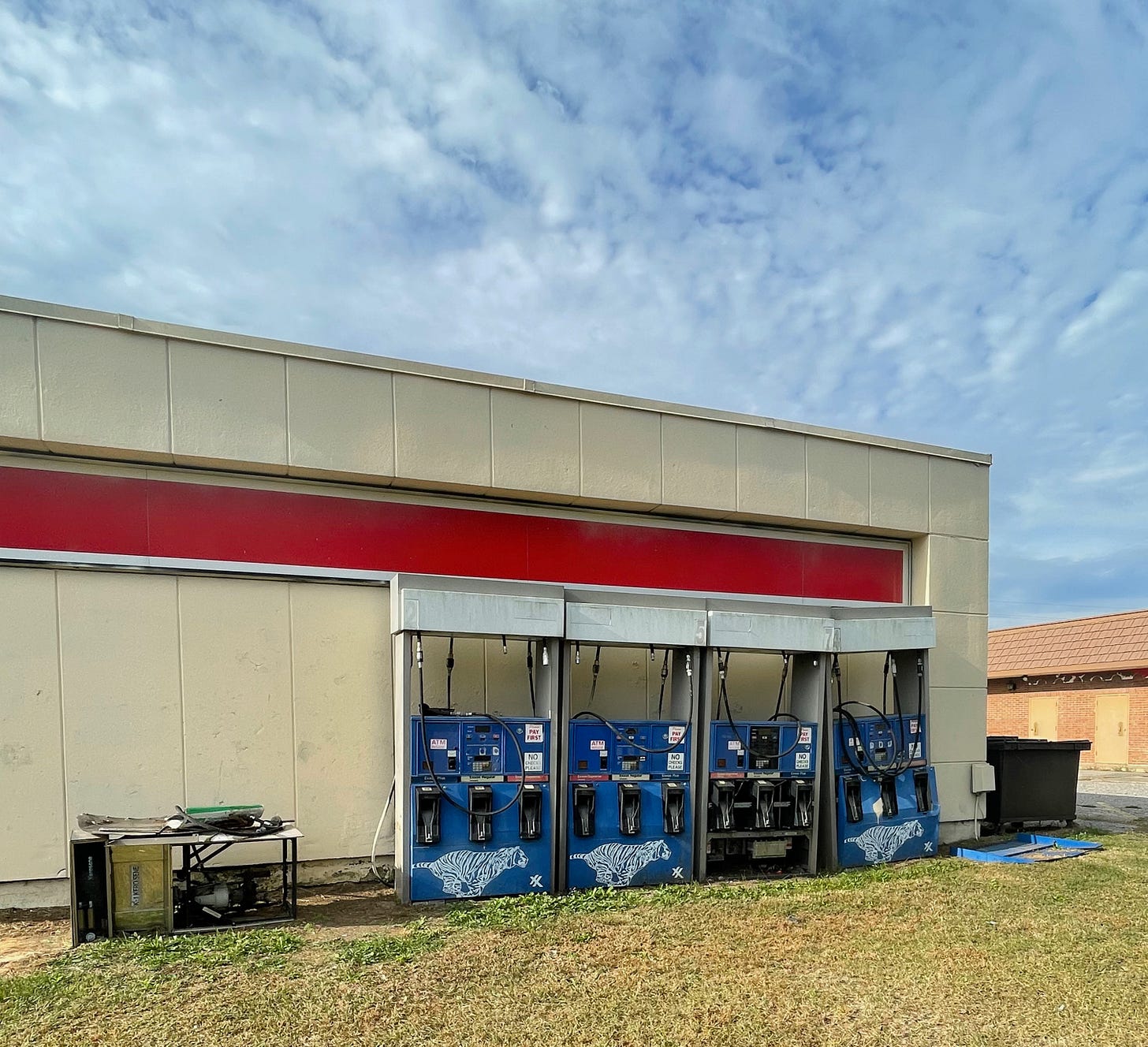
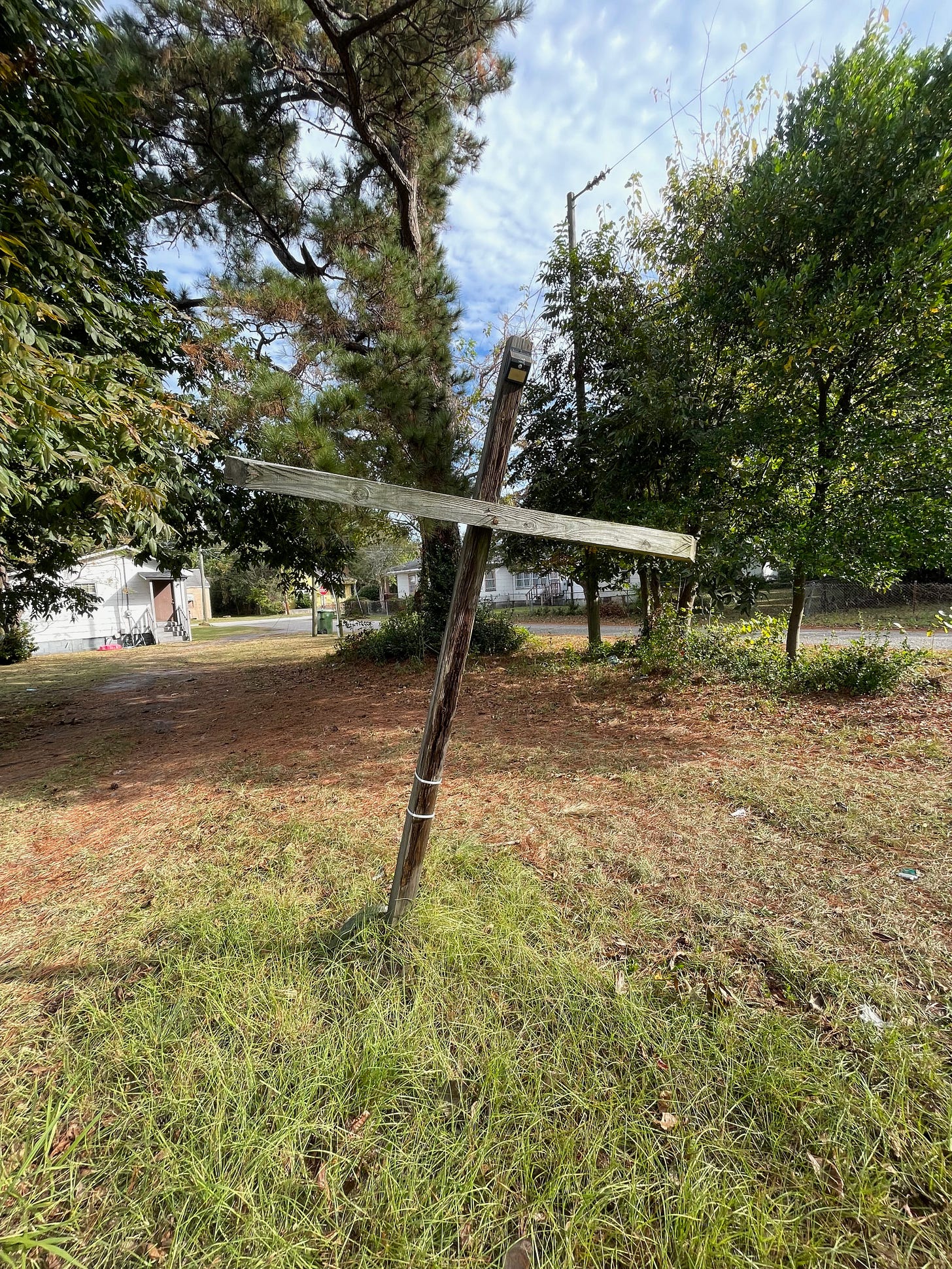
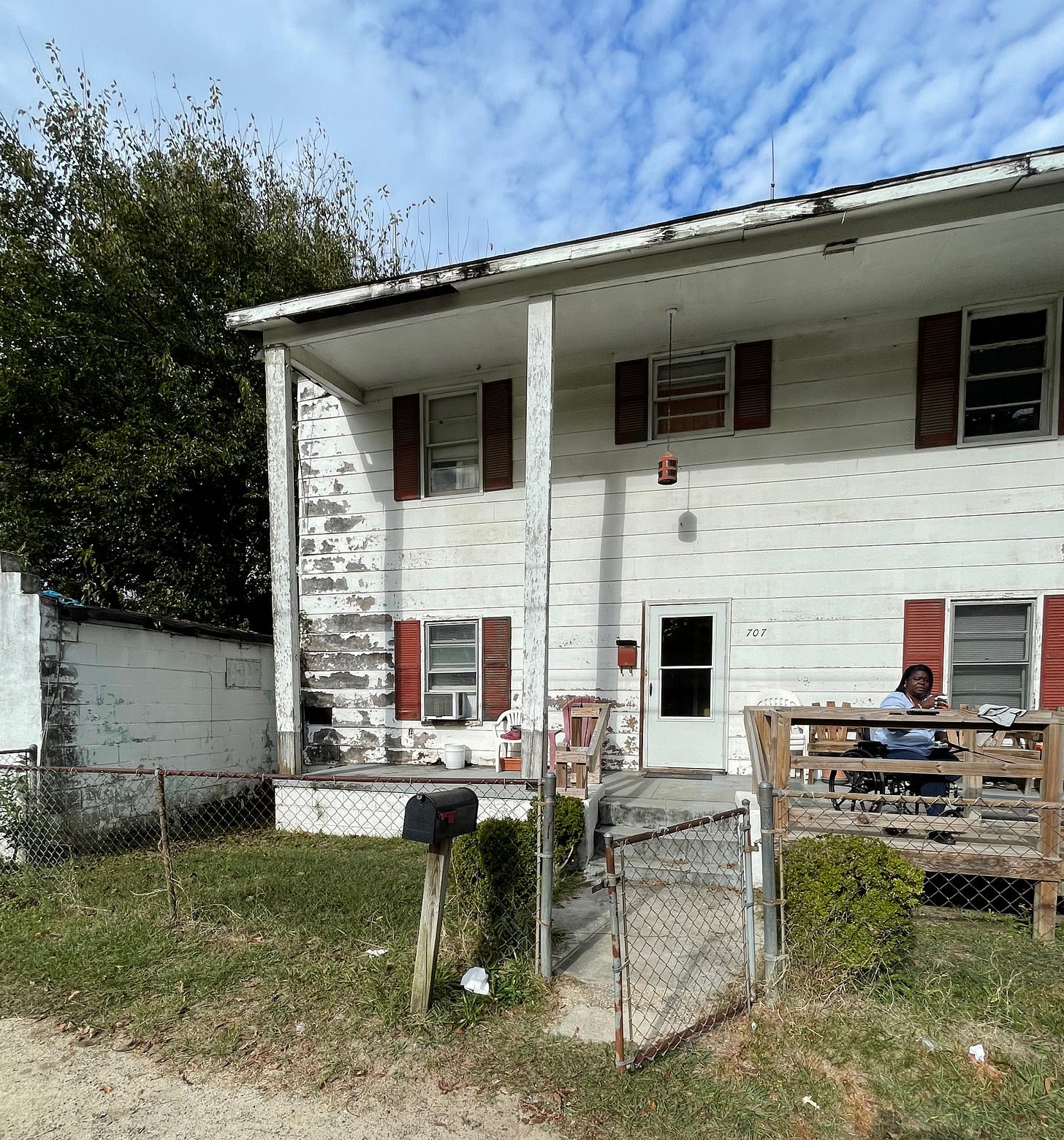

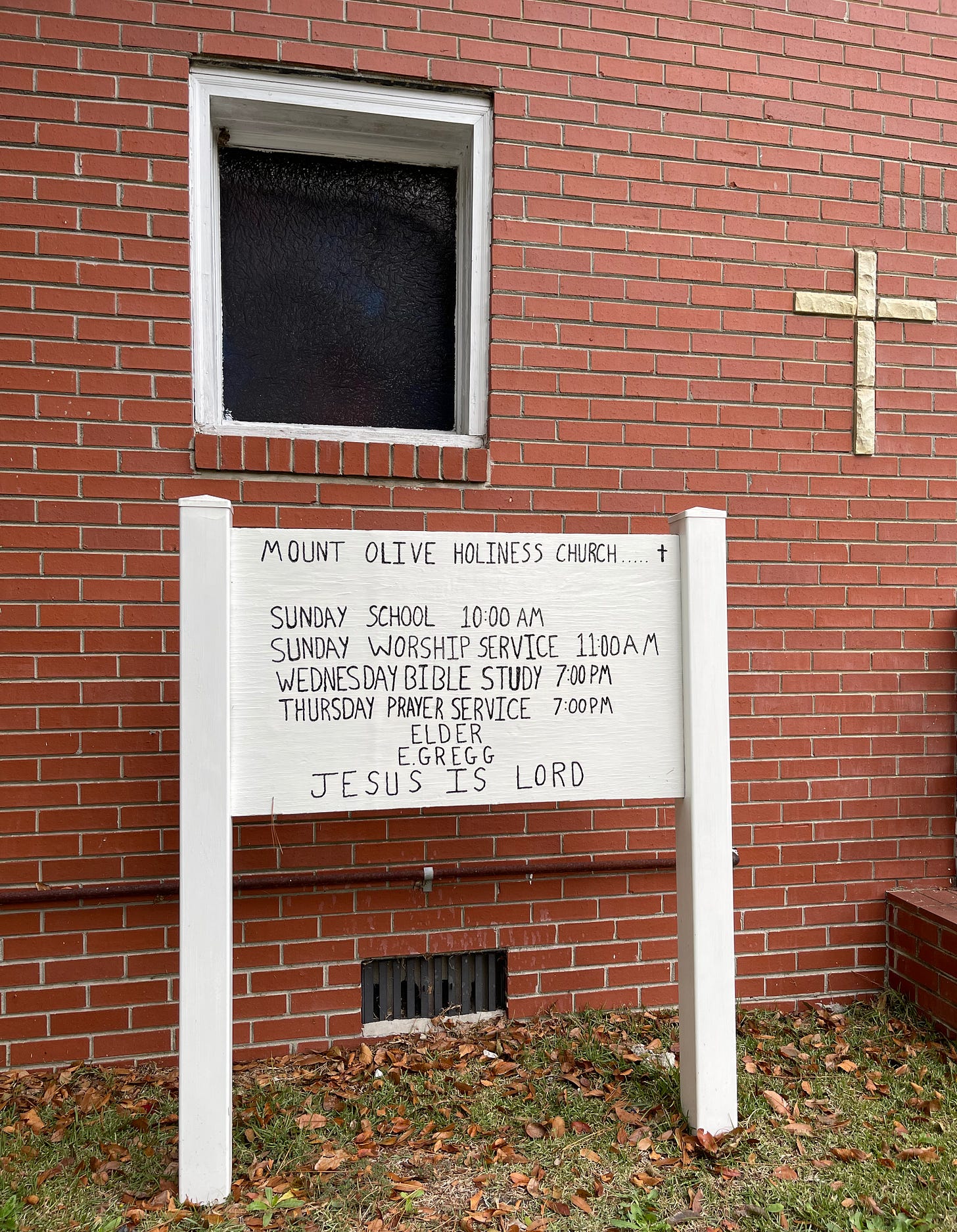
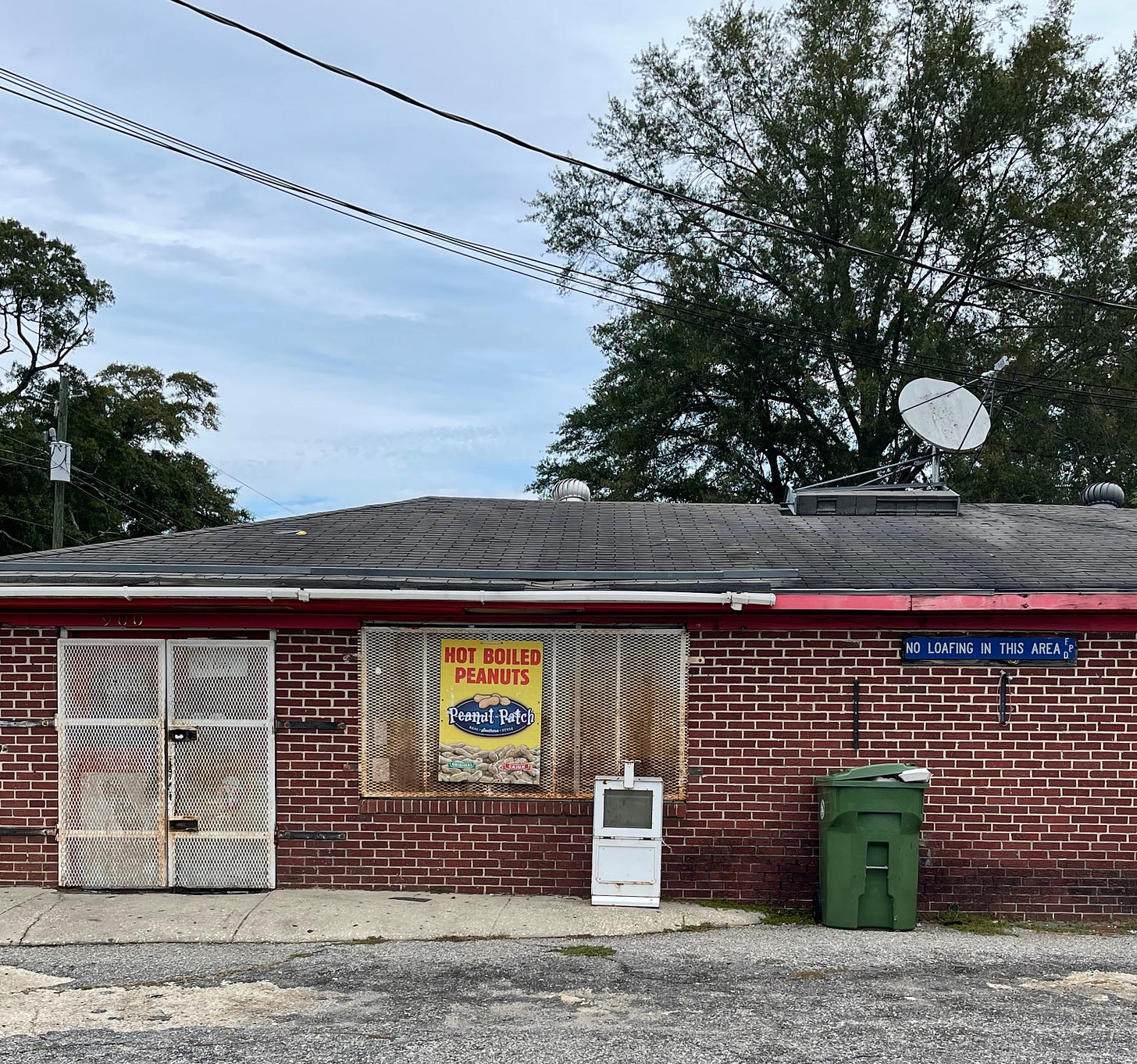
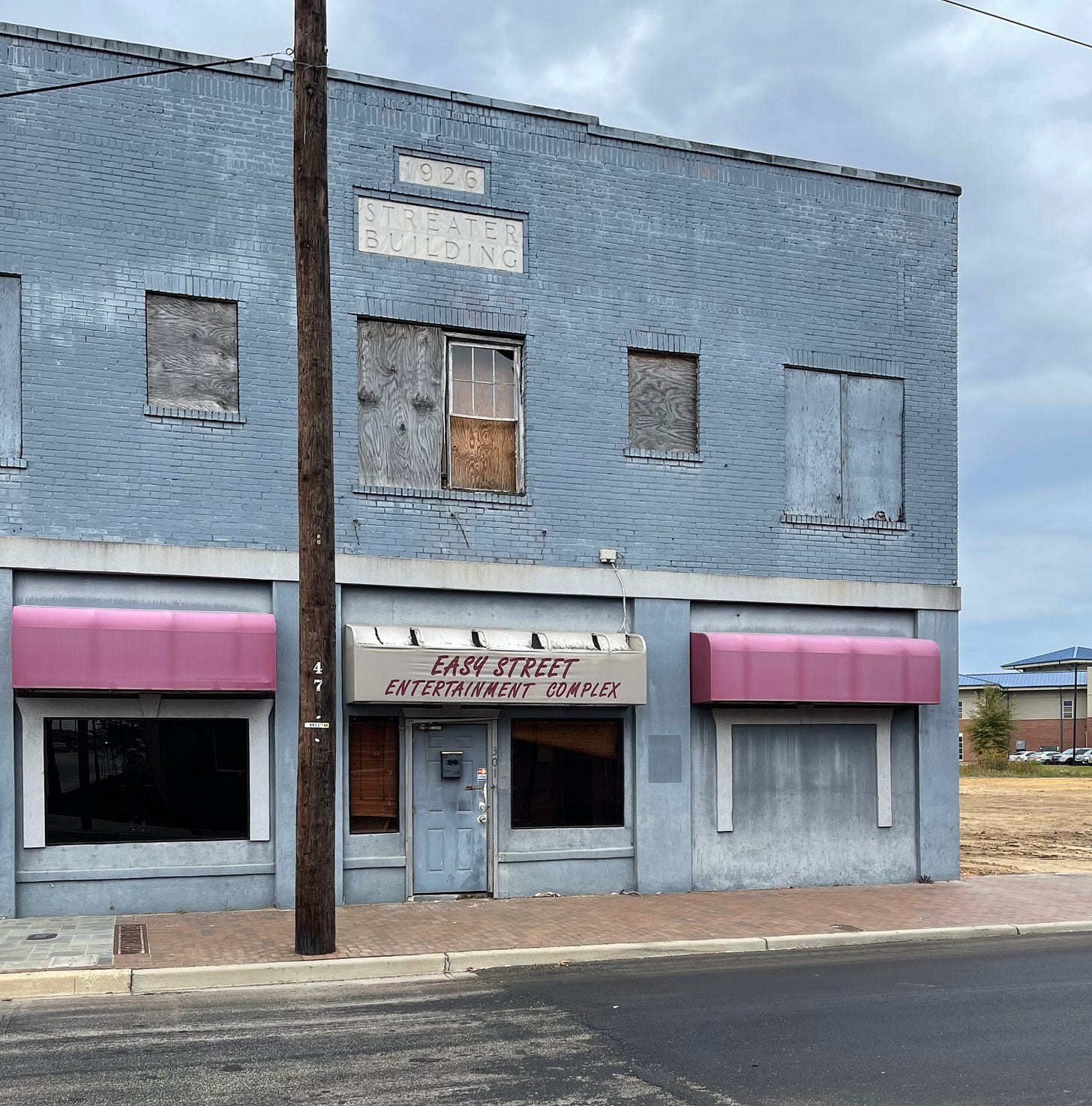

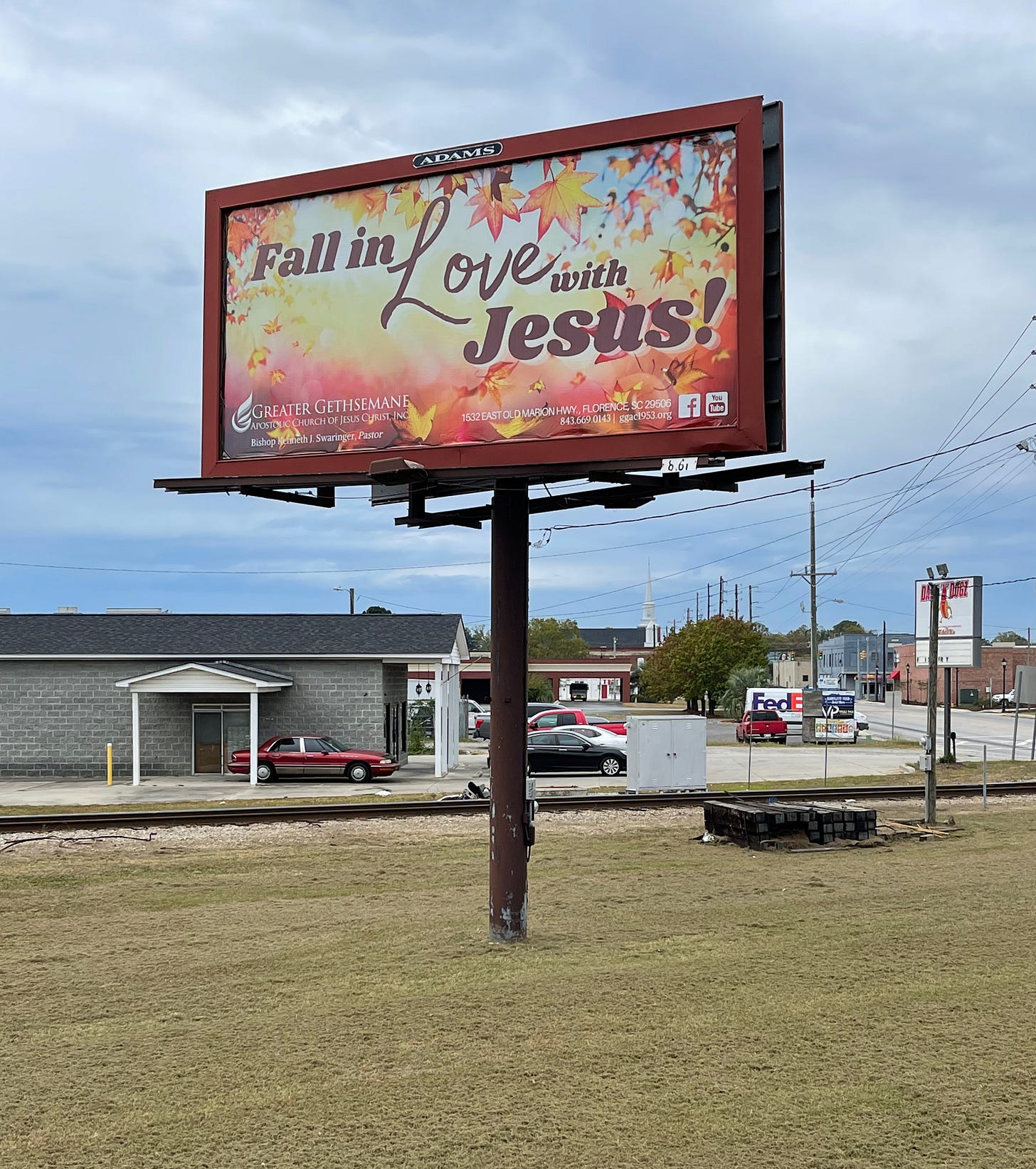
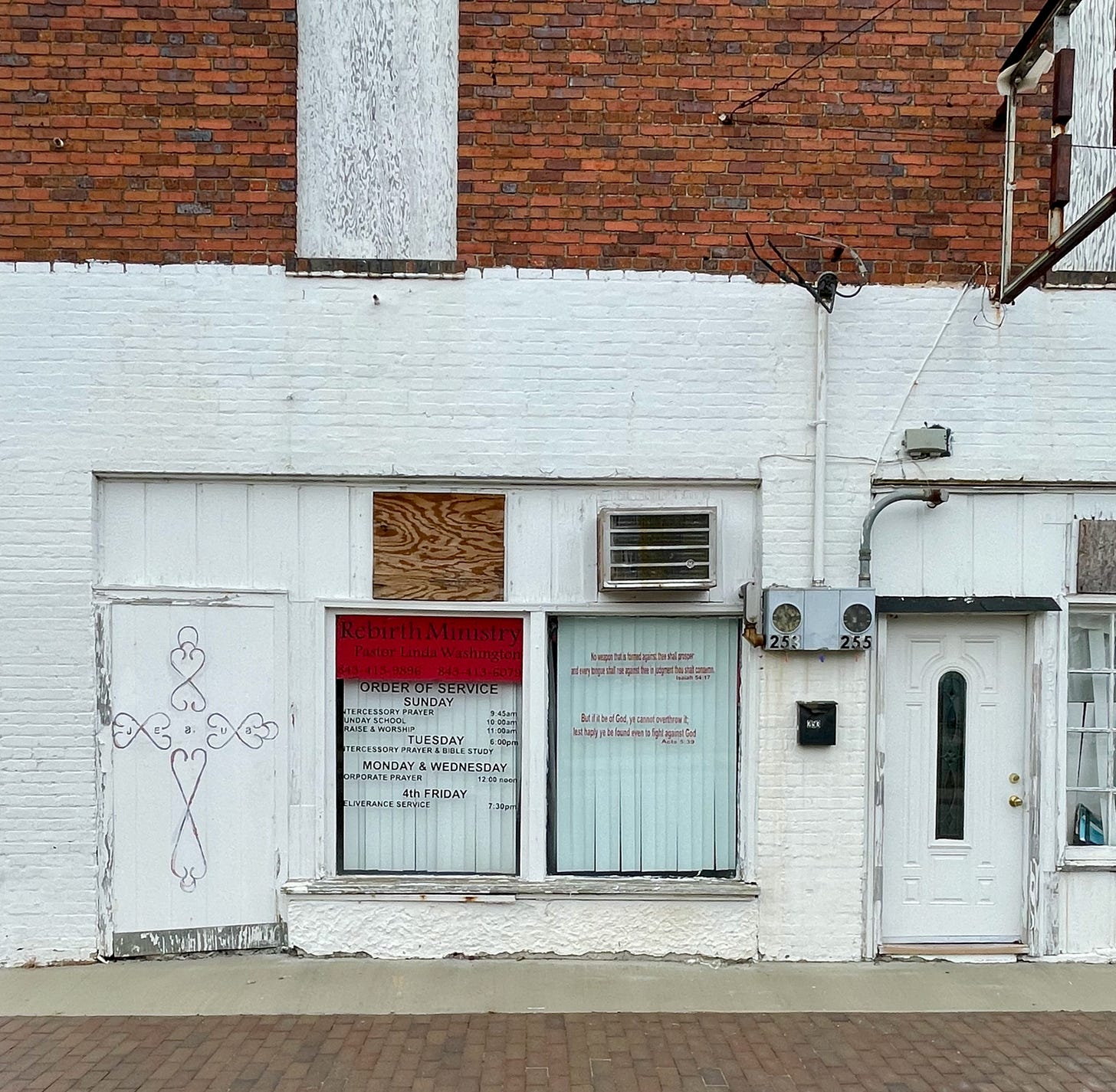
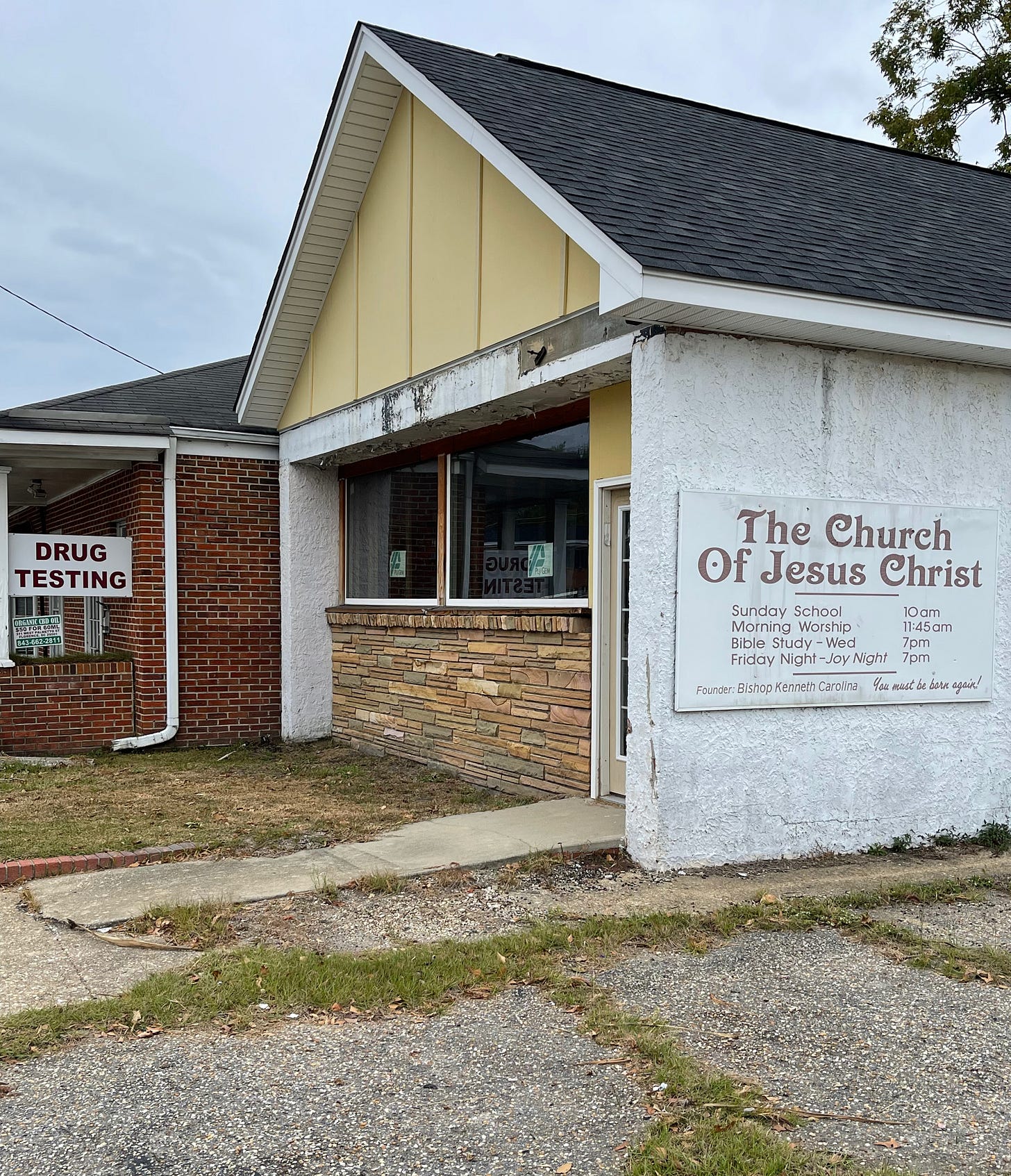
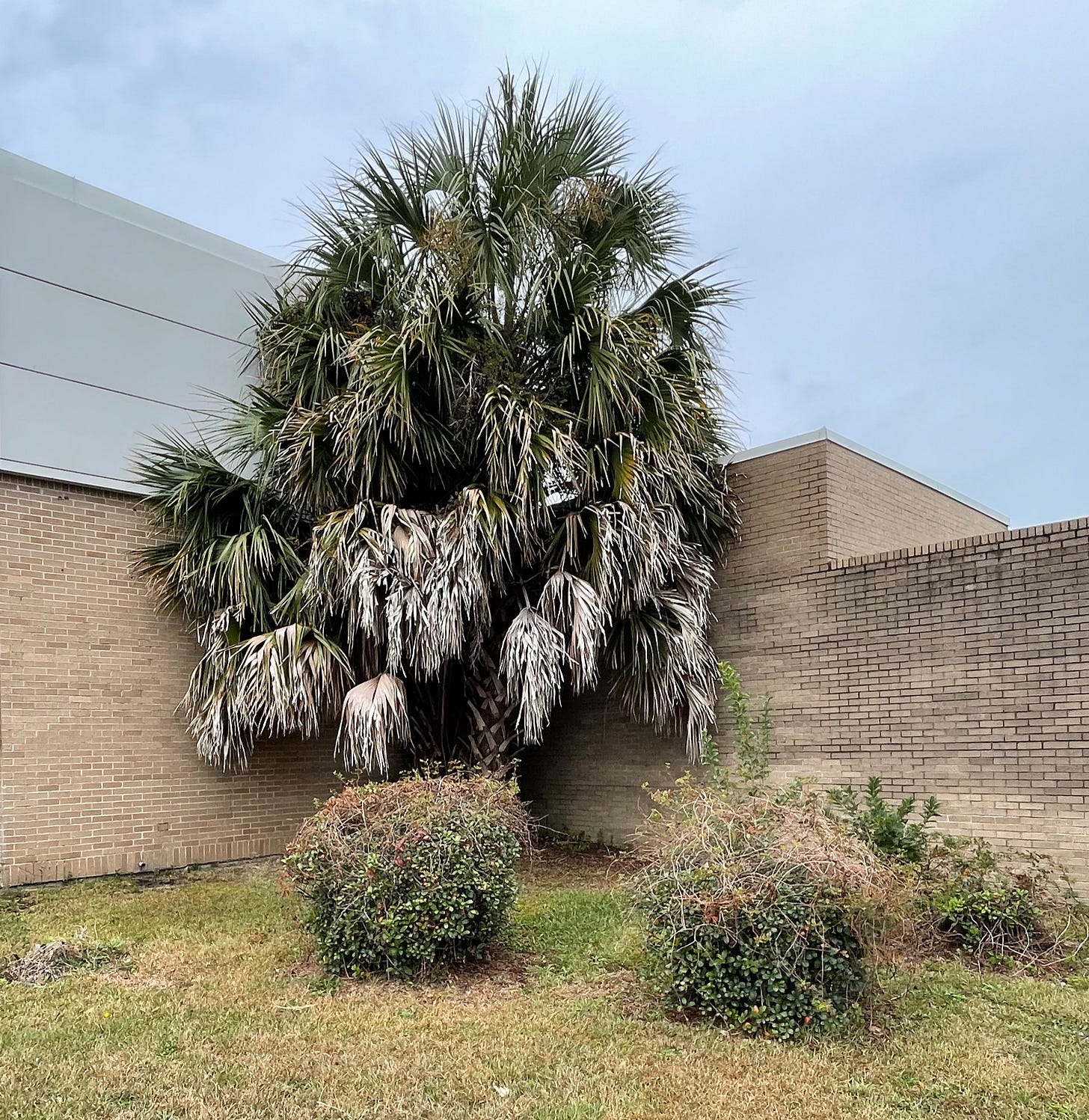
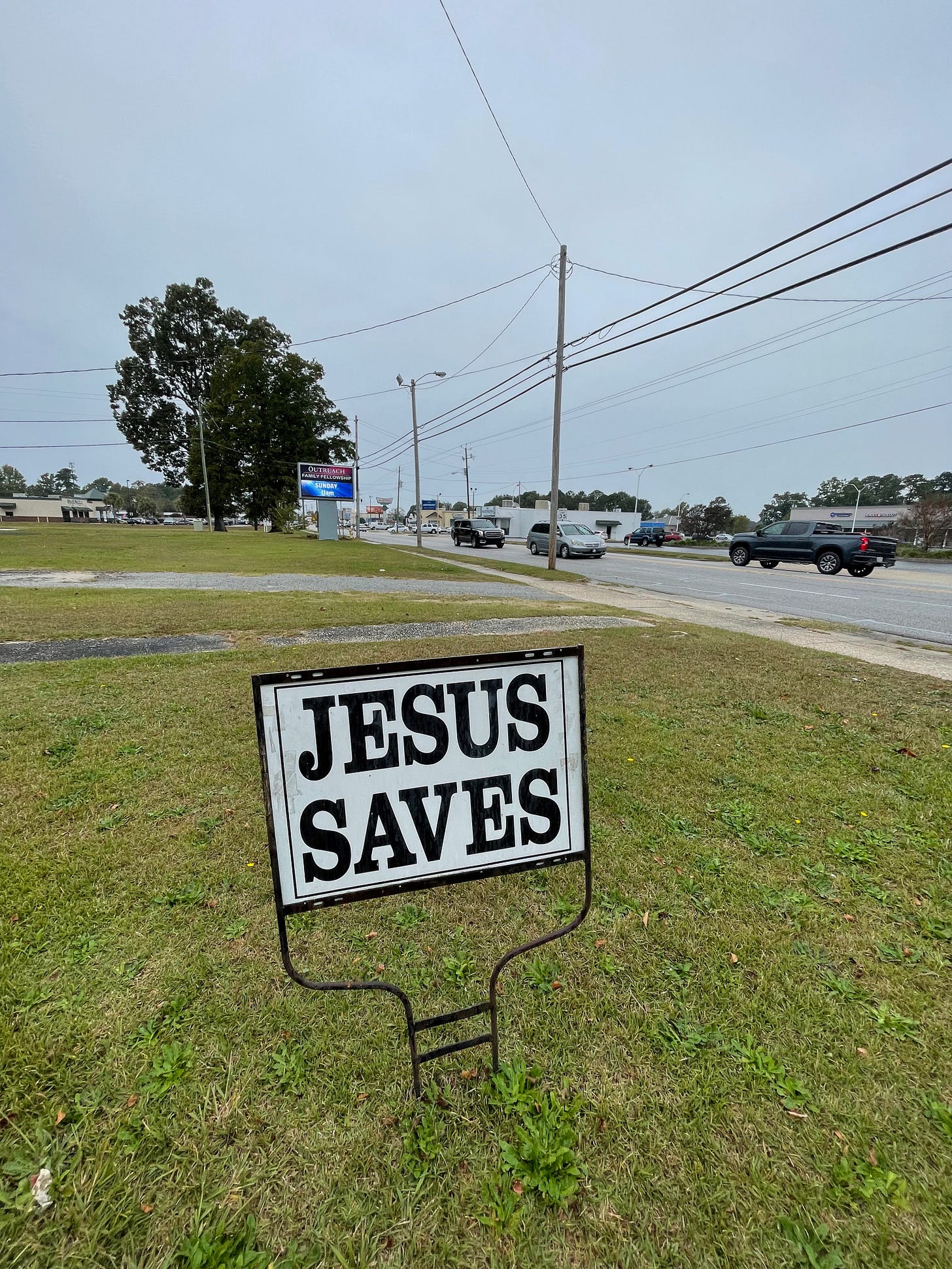

Poor and working class people of every race understand one another so much better, and more easily, than any of the credentialed folks that I see writing about them. Our entire media apparatus now feels like it's geared toward pointing fingers at poor white people, oblivious to the fact that the non-white people can see themselves on the receiving end of those pointing fingers.
I love your work. I come from a poor background in the upper south, always tested off the charts, started ridding myself of an accent when I was 5 or 6 because I'd already figured out how essential that would be. I ended up working in a factory after college, planning to save up money for law school. Then I helped organize a union there, was elected to first bargaining committee. Moved on from there, mostly by sheer luck, to doing lefty (non-union) political work. Finally surrounded by the rich kids that I'd always been drawn to, had spent my high school and college years with: achievers. But even (especially?) the ones that wanted to help had blind spots that I couldn't get them past. An inability to just see the people they believed that they wanted to help. They're so very different.
Even still, I left that work primarily because, unlike my colleagues, if I continued doing it then I would always be one mild disaster away from poverty. I've been very fortunate since. The only people who could possibly mistake me for working class are the very upper class. My son lives in a world that looks like Disneyland to me, when I view it through the eyes of my childhood, as we do. I've been so very lucky.
Now I move through manufacturing facilities all over the US, occasionally the world. I spend a lot of time in the break rooms close to the floor, and in the smoking sections, because I prefer the company there. I watch a level of integration and ease with one another among different races, at volume, that doesn't exist among the better off. They're elbow to elbow and figure out how to manage it without DEI/HR administrator intervention (but for how much longer?).
I moved relatively near my family (I've lived all over the eastern half of the country). I'm a single dad now and I travel a lot. I not only can use my family's help with that situation, I want my son to be around them. My sister works at Wal-Mart; if I ever catch this kid being as disdainful of that as I would've been . . . well he won't let me catch him doing it twice. My grandmother still says she's going to "warsh" some clothes, and my son tries not to get caught scowling, just like I did.
I slip in and out of working class diction, my accent grows. I'm probably saddling my child with class markers that won't necessarily serve him well where he's likely going, and I'm not unhappy about it (though we worry about everything, don't we?).
All of this (unnecessarily, and I apologize) to point out why this work really touches me. And it's much more important than almost anyone realizes. You're so right about people wanting different things. If you've decided that you don't want to be defined by a career, by meritocratic achievement, in this country, well (a) that is perfectly natural, and will almost certainly allow you to have fewer ethical quandaries in your life and (b) good luck staying afloat. Almost nothing here is truly geared toward helping you. Some people could do a lot "more" in tthe world, but in making the effort would have to give away some crucial part of their soul. So they don't, and don't want to. These are the best people that humanity has yet produced, the ones who hold up the world.
The people who most claim to want to help simply do not and will not have a level of understanding that would allow them to do that. They've moved on from being largely ineffectual and distracted, and have become harmful at that effort, unbelievably counterproductive. Comforting the comfortable, and afflicting the afflicted.
Sorry to ramble on this way, and in public no less. You touched me today, and I thank you for it. I'm grateful for what you do, and hope you find a way to keep doing it.
This might be my favorite one so far. I've lived in the South my whole life and this is so spot on. Thank you.